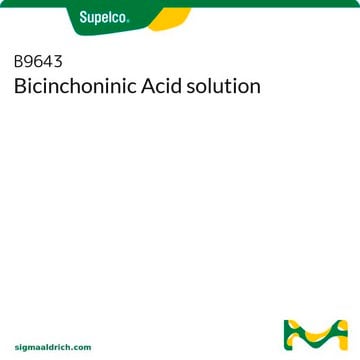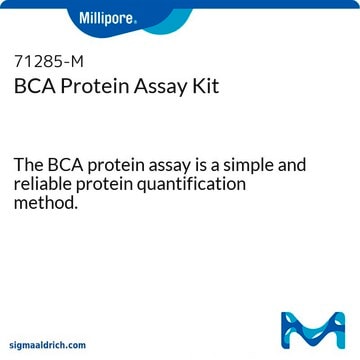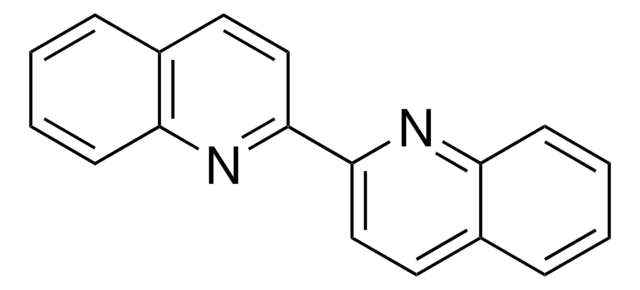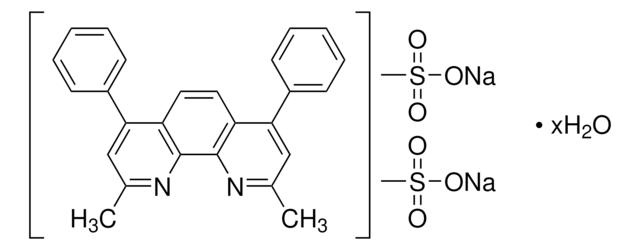D8284
Bicinchoninic acid disodium salt hydrate
≥98% purity (HPLC), powder
Synonym(s):
2,2′-Biquinoline-4,4′-dicarboxylic acid disodium salt, 4,4′-Dicarboxy-2,2′-biquinoline disodium salt, BCA, Disodium 2,2′-biquinoline-4,4′-dicarboxylate
About This Item
Recommended Products
product name
Bicinchoninic acid disodium salt hydrate, ≥98% (HPLC)
Quality Level
Assay
≥98% (HPLC)
form
powder
technique(s)
titration: suitable
color
white to light yellow
solubility
0.5% sodium bicarbonate: 50 mg/mL
application(s)
diagnostic assay manufacturing
hematology
histology
storage temp.
2-8°C
SMILES string
O.[Na+].[Na+].[O-]C(=O)c1cc(nc2ccccc12)-c3cc(C([O-])=O)c4ccccc4n3
InChI
1S/C20H12N2O4.2Na.H2O/c23-19(24)13-9-17(21-15-7-3-1-5-11(13)15)18-10-14(20(25)26)12-6-2-4-8-16(12)22-18;;;/h1-10H,(H,23,24)(H,25,26);;;1H2/q;2*+1;/p-2
InChI key
FAFVGCAYKZKOPT-UHFFFAOYSA-L
Looking for similar products? Visit Product Comparison Guide
Application
- Bicinchoninic acid disodium salt hydrate has been used to monitor the levels of reducing sugars, thereby helping in the detection of chitinases.
- It has also been used to determine the amount of cellulose reducing ends (micromoles/g cellulose).
- It has been used for determining protein concentration.
Biochem/physiol Actions
related product
Signal Word
Warning
Hazard Statements
Precautionary Statements
Hazard Classifications
Eye Irrit. 2 - Skin Irrit. 2
Storage Class Code
11 - Combustible Solids
WGK
WGK 3
Flash Point(F)
Not applicable
Flash Point(C)
Not applicable
Personal Protective Equipment
Choose from one of the most recent versions:
Certificates of Analysis (COA)
Don't see the Right Version?
If you require a particular version, you can look up a specific certificate by the Lot or Batch number.
Already Own This Product?
Find documentation for the products that you have recently purchased in the Document Library.
Customers Also Viewed
Our team of scientists has experience in all areas of research including Life Science, Material Science, Chemical Synthesis, Chromatography, Analytical and many others.
Contact Technical Service











